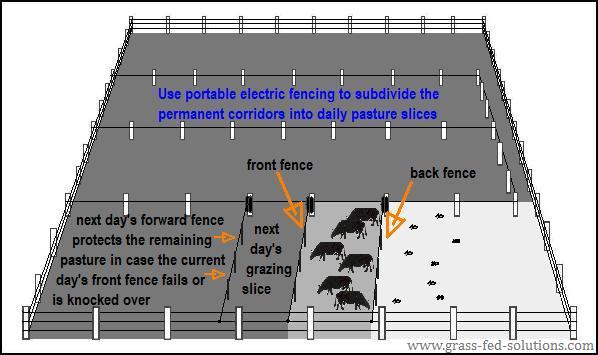Electric Fence Construction Cattle

Barbed wire should not be electrified.
Electric fence construction cattle. An electric fence is a neat highly efficient way to keep livestock where they belong. Heavy posts with thick gauge wire or cables are required or electric fence may be effectively used. Insert wooden posts t posts and prep for gates. This article series explains how to use a combination of permanent and portable electric cross fences to create the simplest most efficient and cheapest cattle fencing solution.
To prevent escapes these fences should be at least 60 inches high and provide good visibility to the outside which will reduce stress on the cattle and keep them moving. Traditionally barbed and woven wire materials have been used for beef cattle. The type you chose will depend on factors such as expense ease of construction and expected life of the fence. The smart electric fence grid planning construction.
The majority of cattle and sheep fences may be non. Then install at least 1 grounding post that s 6 feet or longer near the charger using a post hole digger. We show you how to install an electric fence safely and effectively. For these fences electric lines are not appropriate.
For safety reasons the following designs use either smooth steel wire htsw or poly wire. Factsheet 307 260 2 page 2 of 9 controlling cattle and sheep with electric fences is mainly done for improved grazing. The electric fences and rotational grazing chapter of my book grass fed cattle provides detailed instructions and diagrams for every stage of electric fence construction including complete instructions for gates underground wires brace posts strainer posts insulators energizers ground rods lightning protectors cut out switches. Farm fence fences are also built the same way board rail fences are.
The posts go in first and then the rails or boards. Fence height for perimeter cattle fences should be a minimum of 54 inches. To safely contain most beef cattle a fence charger that delivers at least 2 000 volts to 3 000 volts to. The steps above are primarily for building wire fences.
Keeping corner posts in the ground is derynck s chief concern. He says a 10 foot brace is the ultimate and he favors a floating diagonal bracing system in which the angle brace is a 4 inch by 10 foot post notched a half inch into the main corner post. If you are building board or rail fences typically it s the opposite. There are several fencing options for beef cattle.
Fences for handling facilities must be strong. When bulls are penned separately from cows special attention must be paid to construction. Electric fence for cattle. This is the same for temporary electric fences.
Once you ve done that run a grounding wire from the charger to all of the grounding posts.














































